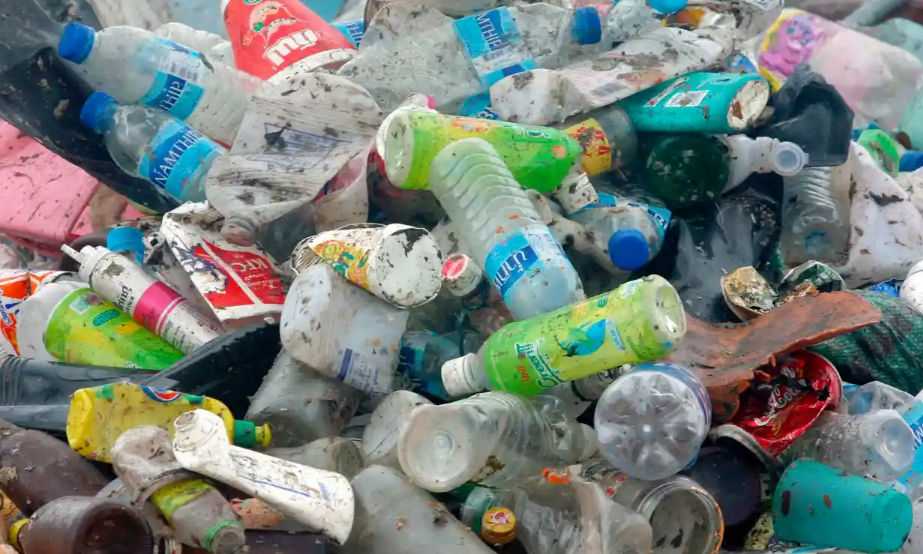Scientists have discovered microbes in the Alps and the Arctic that can digest plastic at low temperatures, which could be a valuable tool for recycling.
Many microbes that can do this have been discovered, but they usually only work at temperatures above 30°C (86°F).
This means that they are very expensive to use in industrial practice due to the heating required. It also means that using them is not carbon neutral.
Scientists at the Swiss Federal Research Institute WSL have discovered microorganisms that can perform this operation at 15°C, which could lead to a breakthrough in microbial recycling. Their findings were published in the journal Frontiers in Microbiology.

Joel from WSL
Dr. Rüthi and colleagues collected 19 strains of bacteria and 15 species of fungi in Greenland, Svalbard and Switzerland that grew on free-standing or intentionally buried plastic items that remained underground for a year. They grew the microbes as single-strain cultures in the laboratory in the dark at 15°C and tested whether they could digest different types of plastic.
The results showed that the strains belonged to 13 genera of Actinobacteria and Proteobacteria, and the fungi belonged to 10 genera of Ascomycota and Mucormycota.
Plastics tested included non-biodegradable polyethylene (PE) and biodegradable polyurethane (PUR) as well as two commercially available polybutylene terephthalate-adipate (PBAT) and polylactic acid
(PLA) biodegradable blend.
Even after 126 days of culture on these plastics, all strains were unable to digest PE. But there are 19 strains
(56%), including 11 fungi and 8 bacteria, were able to digest PUR at 15 °C, while 14 fungi and 3 bacteria were able to digest a plastic mixture of PBAT and PLA.
Joel
Dr Rüthi said: “Here we show that novel microbial taxa obtained from the ‘plasticsphere’ of alpine and arctic soils are able to break down biodegradable plastics at 15°C. cost and environmental burden.”
Surprisingly, a high percentage of the tested strains were able to degrade at least one of the tested plastics, he said.
The scientists also tested the top-performing fungi and found that they were two uncharacterized fungal species in the genera neodevriesia and lachnellula that could digest all of the plastics tested except PE.
While plastics have only been widely used since the 1950s, microbes can degrade polymers because they resemble certain structures found in plant cells.
Beat, one of the study authors
Dr Frey explained: “Microorganisms have been shown to produce a variety of polymer-degrading enzymes that are involved in the breakdown of plant cell walls. In particular, phytopathogenic fungi have often been reported to biodegrade polyesters because of their ability to produce cutinases, And cutinases target plastic polymers because they are similar to the plant polymer cutin.”
The scientists tested the microbes at only one temperature, so the best ones to use have not yet been found. Nonetheless, they say it works well between 4°C and 20°C.
beat
Dr Frey said: “The next big challenge will be to identify the plastic-degrading enzymes produced by the microbial strains and optimize the process for obtaining large amounts of protein. In addition, further modification of the enzymes may be required to optimize properties such as protein stability.”



 微信扫一扫打赏
微信扫一扫打赏
